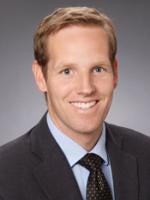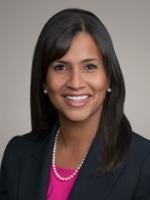The Ninth Circuit has overruled its own relatively recent decision and has held that a debtor who sues for damages to redress a violation of the automatic stay may recover the reasonable fees it incurs prosecuting the action, even after the stay violation is cured.
The Bankruptcy Code’s automatic stay provision, section 362, includes this fee recovery clause: “[A]n individual injured by any willful violation of a stay provided by this section shall recover actual damages, including costs and attorneys’ fees . . . .” 11 U.S.C. § 362(k). The Ninth Circuit, in contrast to every other court to consider the issue, held in 2010 that section 362(k) allows a debtor to recover only those fees incurred to end the stay violation itself, not the fees incurred to prosecute an action for damages. See Sternberg v. Johnston, 595 F.3d 937 (9th Cir. 2010). In a decision issued last week, the Ninth Circuit overruled its own Sternberg decision and held that a debtor may recover the reasonable fees it incurs prosecuting a damages action relating to a stay violation. See In re Schwartz-Tallard, Case No. 12-60052 (9th Cir. Oct. 14, 2015). (See opinion here.)
In Schwartz-Tallard, a loan servicer foreclosed on the home of a chapter 13 debtor during the debtor’s bankruptcy, while the debtor was making its monthly payments. The bankruptcy court found that the creditor had violated the automatic stay and ordered the creditor to reconvey the home to the debtor. The creditor promptly complied. The debtor also sought a damages award, and prevailed. The creditor appealed the damages award, and the debtor prevailed on appeal. The debtor then sought to require creditor to reimburse the attorney fees the debtor incurred defending its damages award on appeal. The bankruptcy court denied the motion because under Sternberg, debtors could be reimbursed only for the fees they incurred to end the stay violation. Here, the creditor had remedied the stay violation before the successful appeal, and thus no fees could be awarded in connection with the appeal.
The Bankruptcy Appellate Panel reversed on grounds not relevant here and held that the debtor could recover her fees relating to the appeal. The Ninth Circuit, first as a three-judge panel and then sitting en banc, affirmed the BAP’s decision, but not on the same grounds. The Ninth Circuit held that Stenberg was decided incorrectly and that the plain text of section 362(k) allows a debtor to collect attorney fees regardless of whether the fees were incurred to remedy the stay violation or to seek damages resulting from a stay violation. Though it found the text of section 362(k) unambiguous, the Ninth Circuit went on to state that the policies presumably underlying section 362(k) would be advanced only if debtors had adequate “means or financial incentive (or both)” to “vindicate their statutory right to the automatic stay’s protection.”
The most obvious practical impact of Schwartz-Tallard is identified in the decision itself: debtors who previously lacked the financial incentive to pursue damages for stay violations may now be more willing to bring those actions. For creditors and their attorneys, Schwartz-Tallard is simply another reminder to scrupulously respect the automatic stay.





 />i
/>i


